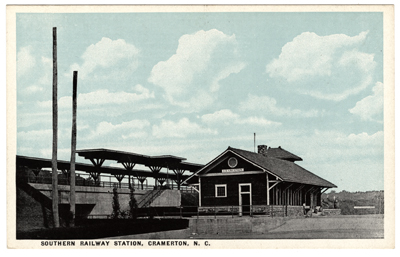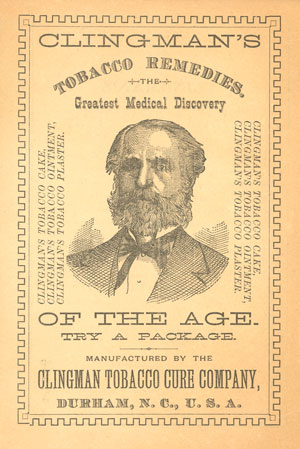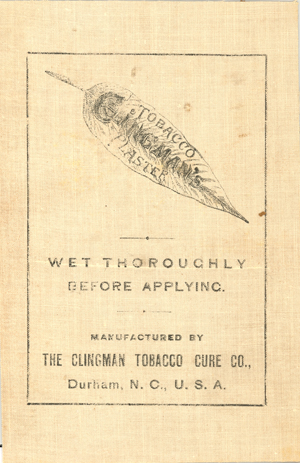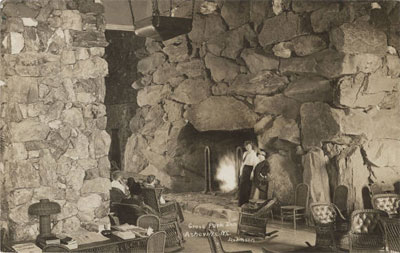“North Carolina last week was upset because its fifth-grade pupils were learning State history out of a book (“North Carolina Yesterday & Today” by Jule B. Warren) which declared that:
” ‘ — Congress elected George Washington… President.’ (The electors, not Congress, did so.)
” — Joseph Martin had fought in the Mexican War in 1848… and died in 1786.)
” — Charles McDowell was a hero of the Battle of King’s Mountain in 1780… and was buried in 1775.)
“These were among more than 200 errors of fact turned up by a white-haired, peppery schoolteacher named Nell Battle Lewis, who writes a column in the Raleigh News and Observer.
“In North Carolina [textbooks] are picked by the State Board of Education, which consists of the Governor and State officers.
“Four months ago Clyde R. Hoey and fellow board members adopted the Warren book, rejecting a more scholarly work by Professors A. R. Newsome and Hugh T. Lefler, of the University of North Carolina, and recommended by the State Textbook Commission (educators).
“Nell Lewis had raised such a furor that Governor J. Melville Broughton (who succeeded Hoey Jan. 1) hurried home from a vacation in Mexico City and ordered that the Warren books be recalled for corrections. He also asked Revenue Commissioner A. J. Maxwell to analyze the rejected Newsome-Lefler book. Maxwell, a Hoeyite, explained everything:
” ‘The Newsome-Lefler history continues to harp on the conservatives of the Democratic Party… and intimates that both Governor Ehringhaus and Governor Hoey owed their election to fraud. Such an implication… is entirely out of place in a proposed history for the fifth grade.’ ”
“Last week Authors Newsome & Lefler said in a letter to the Governor: ‘No one can deny the accuracy of the statement that… “many citizens demanded laws to make clean and honest elections more certain.” ‘ ”
–– From Time magazine, April 28, 1941
North Carolina last week was upset because its fifth-grade pupils were learning State history out of a book (North Carolina Yesterday & Today by Jule B. Warren) which declared that:
> “Congress elected George Washington . . . President.” (The electors, not Congress, did so.)
> Tarheel Joseph Martin had fought in the Mexican War in 1848 and trained Confederate troops in the Civil War. (The book also states he died in 1786.)
> Tarheel Charles McDowell was a hero of the Battle of King’s Mountain in 1780. (On page 306, the book says he was buried in 1775.) These were among more than 200 errors of fact turned up by a white-haired, peppery schoolteacher named Nell Battle Lewis, who writes a column in the Raleigh News and Observer. Miss Lewis described the whole thing as A POLITICAL STINK.
Most U.S. schoolbooks are chosen by the schools that use them, but eleven States have boards which adopt books for the elementary schools of the whole State, a system well liked by politicians. In North Carolina they are picked by the State Board of Education, which consists of the Governor and State officers.
Four months ago Clyde R. Hoey, then Governor, and fellow board members adopted the Warren book, rejecting a more scholarly work written by Professors A. R. Newsome and Hugh T. Lefler, of the University of North Carolina, and recommended by the State Textbook Commi sion (educators).
Nell Lewis’ campaign had raised such a furor that Governor J. Melville Broughton (who succeeded Hoey Jan. 1) hurried home from a vacation in Mexico City and ordered that the Warren books, already in use by 90,000 fifth-graders, be recalled at the end of the school term for corrections. He also asked Revenue Commissioner A. J. Maxwell to analyze the rejected Newsome-Lefler book. Maxwell, a Hoeyite, explained everything:
“The Newsome-Lefler history continues to harp on the conservatives of the Democratic Party down to and including the administration of Governor Hoey and plainly intimates that both Governor Ehringhaus and Governor Hoey owed their election to election frauds. Such an implication . . . is entirely out of place in a proposed history for the fifth grade. . . .”
Last week Authors Newsome & Lefler said in a letter to the Governor: “No one can deny the accuracy of the statement that . . . ‘many citizens demanded laws to make clean and honest elections more certain.’ ”
//
//

More News from Our Partners
//
 |
|
|
|
|
| StateAAAEAKALAPARASAZCACOCTDCDEFLGAGUHIIAIDILINKSKYLAMAMDMEMIMNMOMSMTNCNDNENHNJNMNVNYOHOKORPAPRRISCSDTNTXUTVAVIVTWAWIWVWY |
|
|
|
|
Time.com on Digg
POWERED BY digg
For use in rail of Articles page or Section Fronts pages. Duplicate and change name as necesssary to distinguish.
Stay Connected with TIME.com
Read more: http://www.time.com/time/magazine/article/0,9171,765522,00.html#ixzz0kEmgHyxp




















